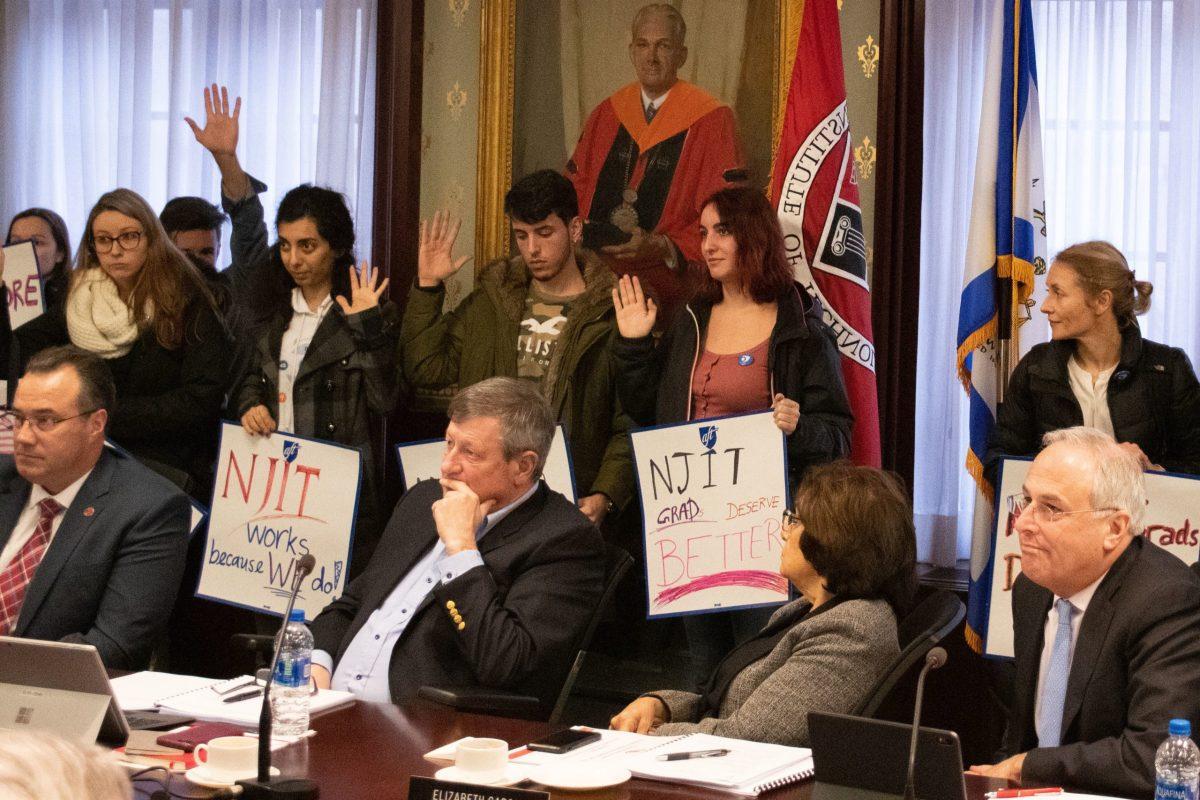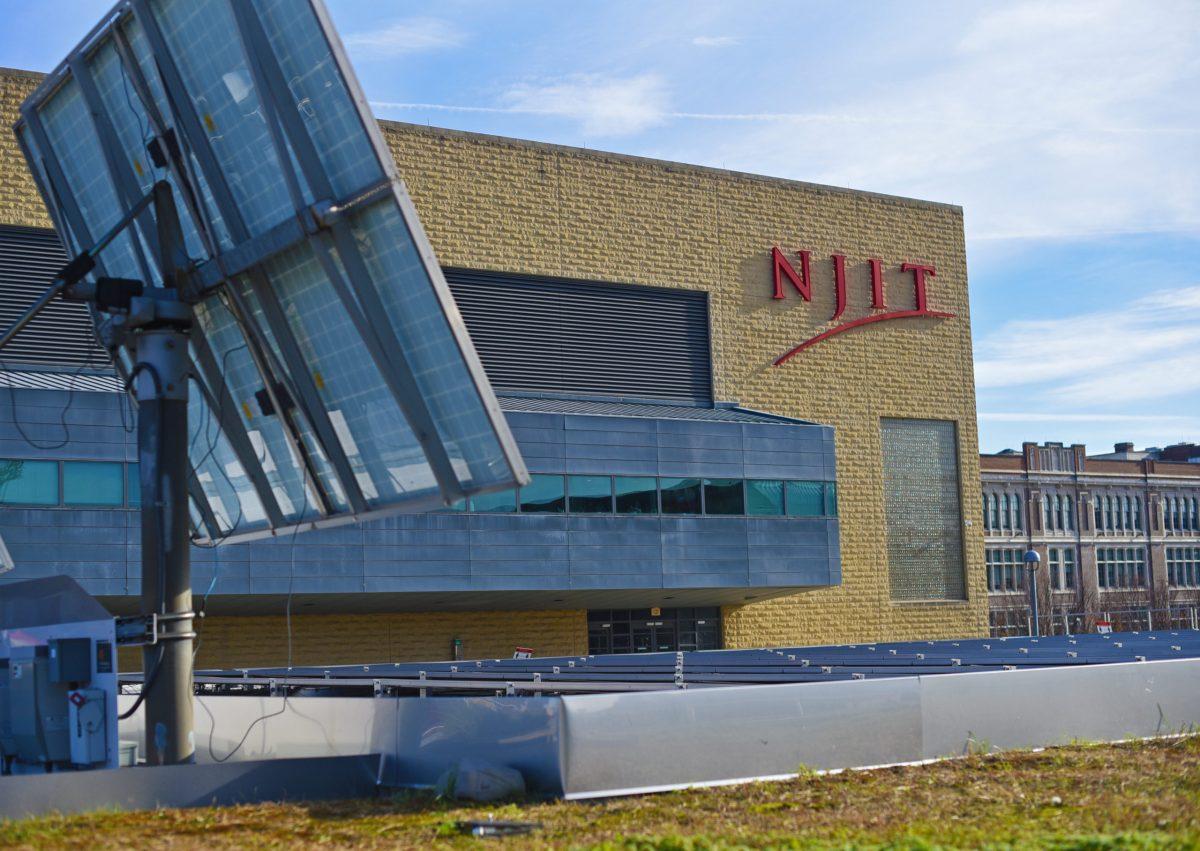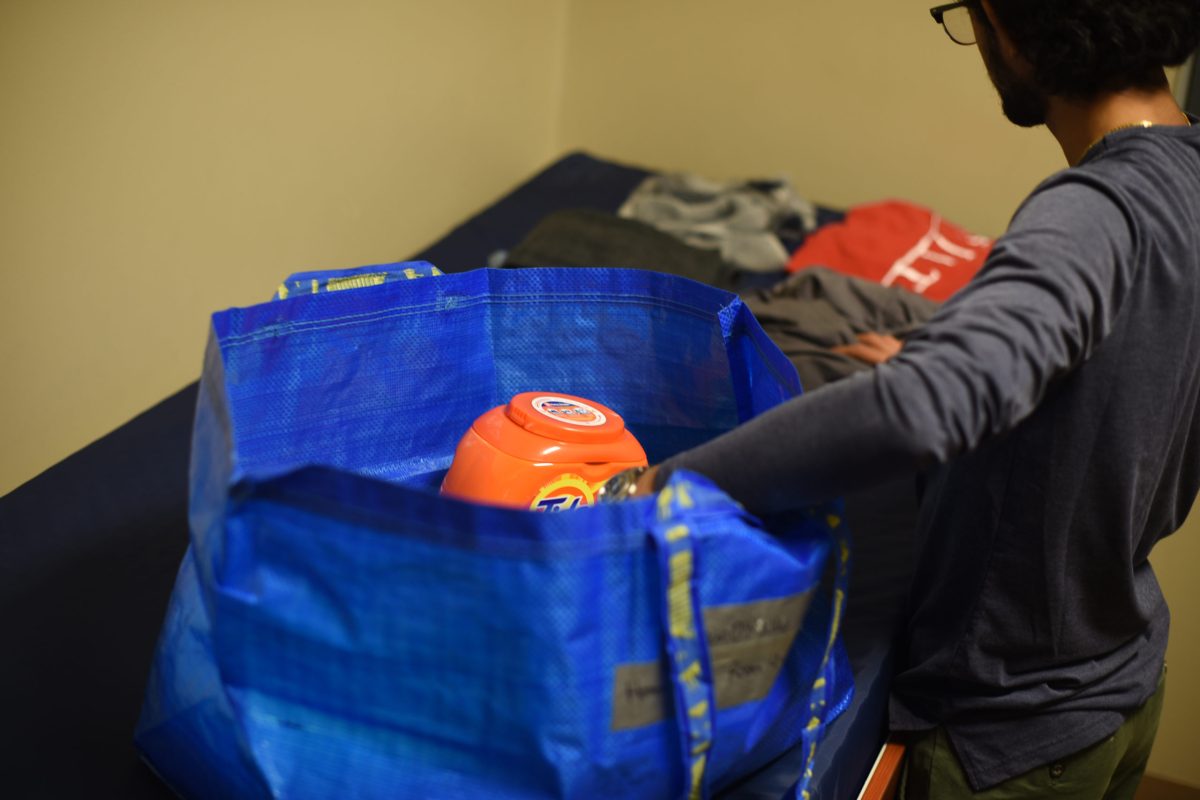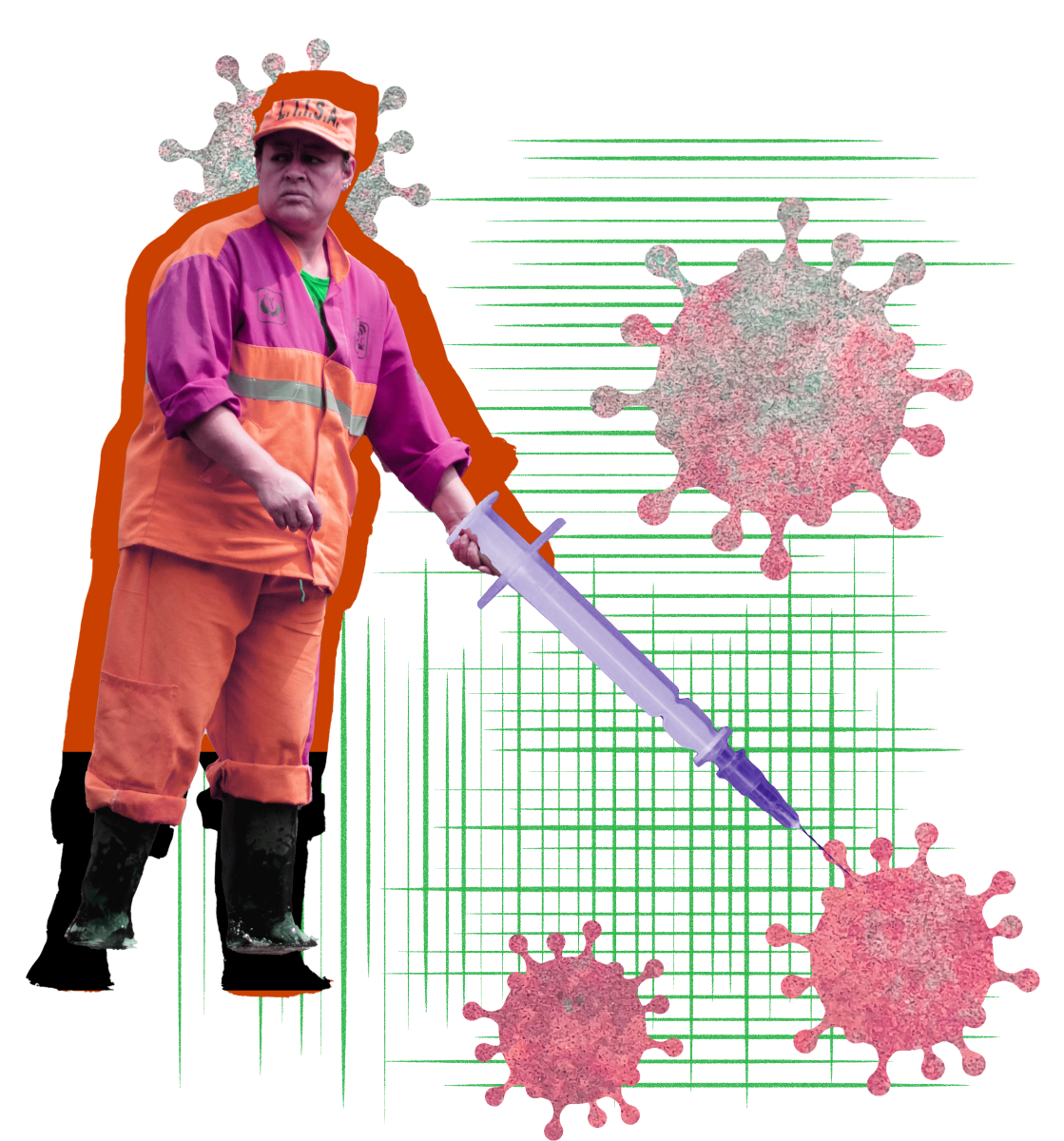On Thursday, Feb. 6, dozens of NJIT graduate students picketed between Campus Center and Fenster Hall. After the protest, students marched to Eberhardt Hall for the public section of the Board of Trustees meeting, holding up signs saying “NJIT works because WE do” and “NJIT Grads Deserve Better,” among others.
One of the primary causes for the protest is that NJIT has been charging the graduate University Fee to research assistants (RAs) but not to teaching assistants (TAs).
The University Fee is charged to both graduate and undergraduate students, and it is factored into the cost of attendance at NJIT. For graduate students, the fee is $189 per credit up to 11 credits, then a $1,602 flat rate for full-time students (12-18 credits).
According to Article 1 of the Graduate Student and Research Employee Bargaining Unit Agreement: “A Graduate Student Employee must meet the following requirements in order to be governed by this Agreement. … (4) has also received full time scholarship for tuition and fees based upon his/her academic credentials.”
This agreement was signed by both NJIT and the graduate students’ union, the United Council of Academics at NJIT (UCAN). As the agreement states, a graduate student under NJIT employment is to receive payment for both the tuition and the fees.
Jacob Chaffin, the organizer of the protest and a UCAN representative, stated that “NJIT’s interpretation has been to waive Teaching Assistant fees for years without an issue and Research Assistants have been included in the bargaining unit since 2012. NJIT has even acknowledged the issue and has agreed to waive RA fees in the future, however, this does nothing for the graduate employees who have incorrectly paid thousands of dollars to NJIT prior to this semester.”
According to Chaffin, UCAN discovered the discrepancy in Nov. 2019 and subsequently filed a grievance to NJIT. He also noted that NJIT had made a verbal offer to return fees from the Fall 2019 semester but did not offer back-pay for any fees collected from RAs prior. UCAN wishes to have fees back-paid through 2017, the year that they became the representatives for NJIT graduate students.
Graduate students have also brought up other grievances such as an inconsistent pay schedule, clerical errors resulting in delayed payment and employment paperwork having to be resubmitted every year despite employment being consistent, thus resulting in more delays in payment. Such delays, the students argue, on relatively low pay in a region with a high cost of living create severe financial insecurity.
At the sign-making on the Wednesday before the protest, Fariba Khajouei, a Biomedical Engineering graduate student, said, “I shouldn’t be going through this stress while I’m doing my research.”
One PhD student who requested to remain anonymous went so far as to say “Because it happens all the time [payment delays] I can’t see this as a mistake, it has to be malice…. It just feels so abusive all the time.”
At the Board of Trustees meeting, the protesters lined the walls and surrounded the Board members, still holding their signs. Looking on were members of the NJIT Faculty Senate, who were to present later, as well as the NJIT Men’s Soccer Team and doctors who were to be recognized by the Board for various achievements.
Stephen DePalma, Chair of the Board of Trustees, broke the tension in the room by saying he was “pleased to report that we certainly have a quorum, and not only do we have a quorum, we have 100-plus percent attendance.”
The first of two graduate students to speak to the Board was Nikola Bosnjak, a PhD candidate in the Mechanical Engineering department. “Every year, we face the same challenge,” Bosnjak said, “Unfortunately, this challenge is not related to our research. We are expected to perform our duties here at NJIT for nine months of [the] academic year while trying to survive with $24,000. Then comes the summer where we’re expected to survive another three months with $3,500, which is less than $1,200 dollars per month.”
“On top of these financial burdens and financial difficulties we’re experiencing,” he continued, “we also have been continuously victims [sic] of NJIT’s administrative failures.”
DePalma responded to the concerns of the graduate students: “We appreciate you coming to the Board and expressing your concerns, you obviously came in full force and made your statements, both verbally and with your signs.”
Regarding late payments, DePalma said, “The process should be fixed. You deserve to get paid at the right time, and whether it’s a sign-off issue, an accounting issue, whatever the issue is, it is a management issue and it should be fixed…. And so when it comes to the timing of your getting paid, that shouldn’t be and we apologize for that aspect of your service. You should get paid on time. So we need to work on that.”
As for the University Fee and the issue of back-pay, DePalma said, “I understand there is a process going on right now where your representatives are continuing to lead and have dialogue with the university administration in an attempt to find settlement. We encourage those continued conversations…. We encourage you to have an open mind. We will relay to the administration for them to have an open mind to bring this to resolution.”
According to Fadi Deek, NJIT’s Provost and Senior Executive Vice President, much of these issues stem from the distinction between research assistants and teaching assistants. “Teaching assistants are a dual resource…. they teach for us, but they also are being supported because they are in a PhD program working with faculty as researchers, so we compensate them for both roles, and therefore we cover their tuition and fees, in addition to the stipend. RAs function solely as research assistants and get paid through research funds [grants] from external agencies.”
This means that the tuition and fees of the TAs are paid for directly by the university, as they work directly in classrooms to help students. Conversely, RAs are funded under grants that their principal investigator received from an outside agency to fund their research.
“Unfortunately,” Deek said, “most grants will cover only the tuition portion and not the fee.”
“However, going forward, this can be fixed by the university” Deek said. “We’re going to have one number and call it tuition. So if they [the tuition and fees] both are together, labeled as tuition, then we’ll have funds to be able to cover that cost, whatever it’s called, but the primary portion is tuition.”
As for the delayed payment to both TAs and RAs, Deek shared similar views as DePalma. “We need to fix this. I agree with the graduate students. It is unfair, this is their sole income. This isn’t income where they can set aside funds for rainy days or for delays in the processing of their paychecks and so on. They get it, they spend it…. So we must do better, at least in instances where we are the cause of the delay.”
Deek identified two potential causes for payment delays. The first occurs because the payment to graduate employees is offered as an award on the NJIT Pipeline. “If a graduate student waits a month or more, sometimes two months to accept the award,” Deek said, “everything else is going to be delayed by this much…. So, we have to work with students on this, and I’m not sure exactly of what’s the right model, to make sure they immediately respond and accept an award extended to them.”
“Also,” Deek continued, “another cause for delays in processing is the multiple sign-offs for graduate student payments: Initiator, department, college, research, budget, and graduate studies. Furthermore, for some payments where the funding source is a grant rather than the university itself, the university must assure that the funds are available in the grant before we can process the student award. However, the administration is in the process of simplifying the payment approval.”
There are good reasons for having such checks, though, according to Deek. “There could be instances, I’m not saying that anyone on purpose will do this, where someone may initiate a nomination for his or her own TA or RA, on an index—a budget account—that doesn’t have enough funding. So if we process without first checking, that person will be employing someone who isn’t going to get paid, at least not on time, then the university is liable.”
Deek did note, however, that the six levels of approval are excessive and that in the near future the number of approvals necessary will be halved at the least.
As for the issue of repaying years of fees to research assistants, the negotiations are currently ongoing.
Photos by Katherine Ji | Photography Editor
















































